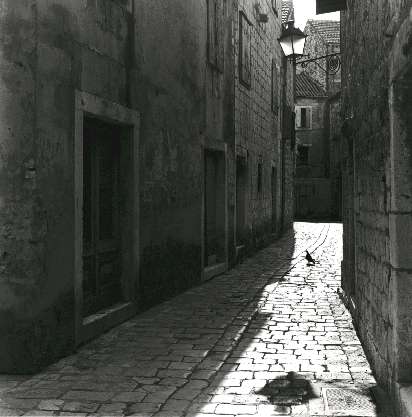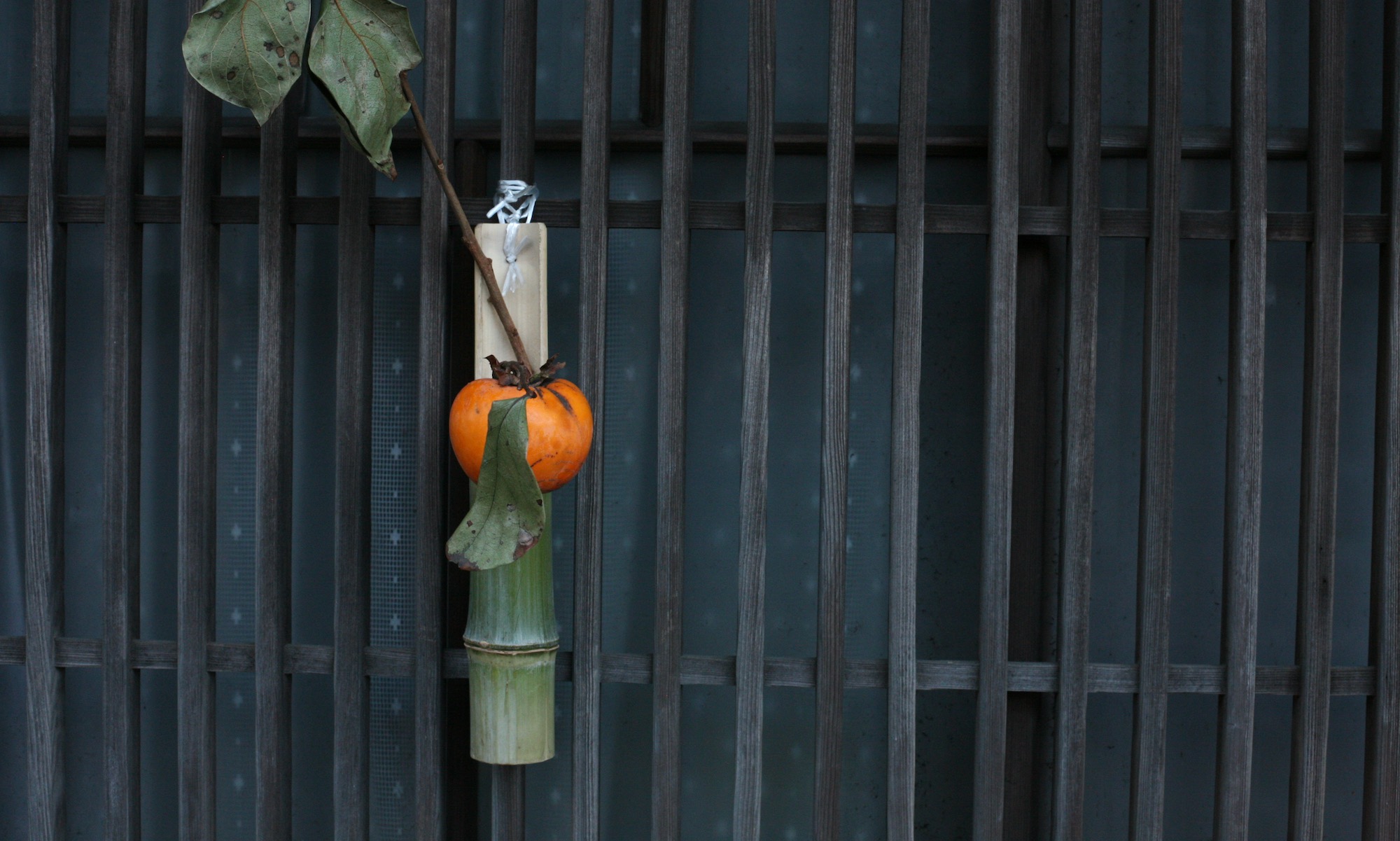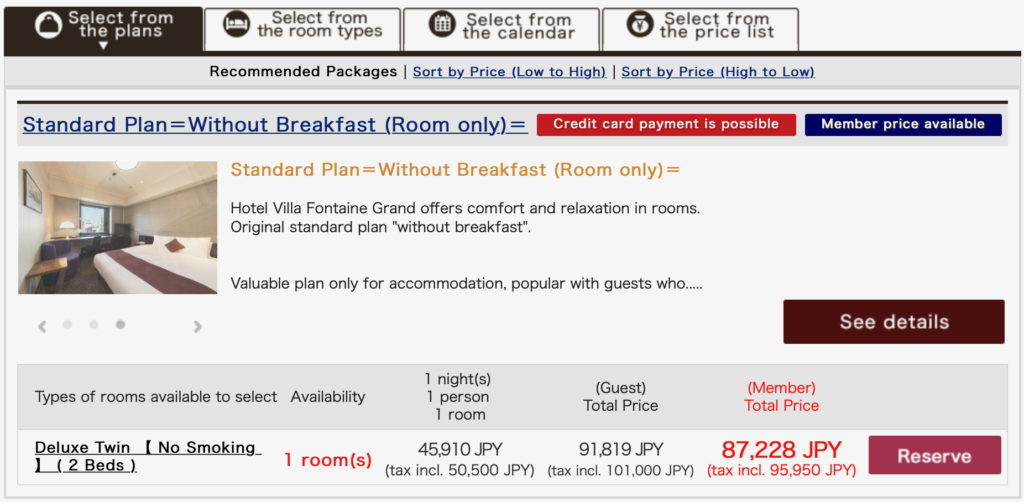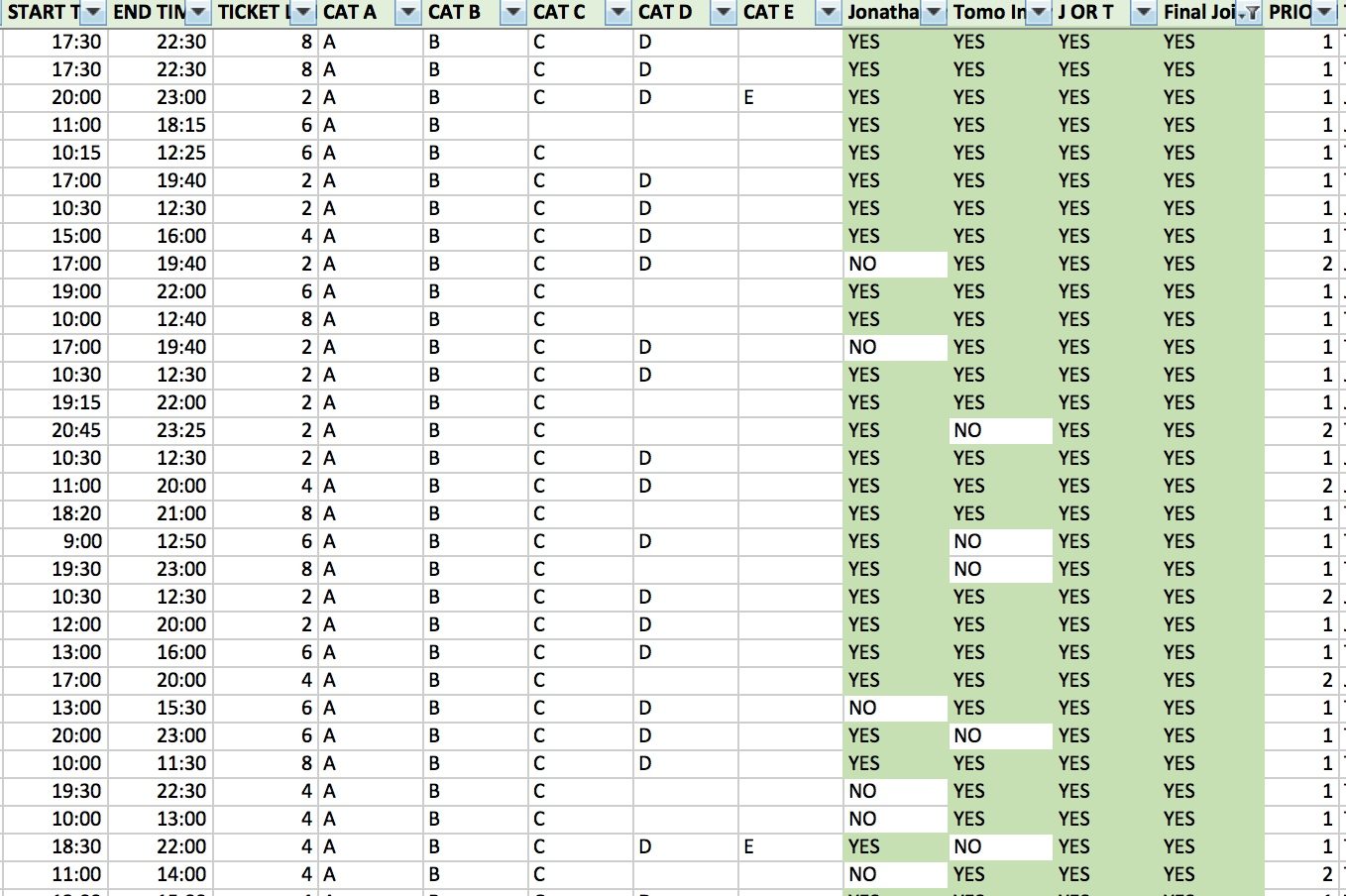In 1996, I was in Croatia on vacation after spending about six months living in Luxembourg. There were not a lot of American tourists at that time as hostilities between Serbia (Yugoslavia) and Croatia had only been over for about a year (Wikipedia link – use at your own risk). IFOR troops were still in the region, bridges were destroyed, land mines were still prevalent, and damage along the coast could still be seen. However, a Croatian friend in Luxembourg invited me to travel with him and his family, so I did.
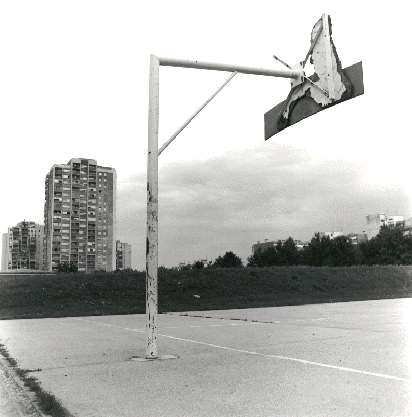
I first went to Zagreb and was given his brother-in-law’s parent’s apartment in a Soviet style housing block call Mamutica (mammoth), seen in the background of the photo above. While Zagreb was not damaged by the war, the people there were definitely impacted over the years. The basketball goal is worn out, but not war damaged.
While I was in Zagreb, the 1996 Atlanta Summer were in full swing. One night, I was walking to dinner at some food court near Mamutica. As I was walking I swore I heard gunfire and even something that sounded like a small rocket. It freaked me out a lot. I couldn’t imagine war had broken out, yet I know what gunfire sounds like and this was definitely gunfire. I made it unharmed to the restaurant, and saw that Croatia and Sweden were playing in the Men’s Handball Olympic finals, and Croatia had won. People were probably celebrating by firing their guns. I never was able to explain what the small rocket sound was, but I was safe. It is a memory that will always stick with me, because realistically I knew war wasn’t breaking out again, and no one else seemed particularly concerned, yet I couldn’t deny what I was hearing.
I continued on to the Dalmatian coast and had a great trip. An interesting side note is the only way to get from Zagreb to cities on the coast was via a pontoon bridge, as the regular bridge had been destroyed with explosives.
I hung out in Murter for some days, and then island hopped from there, eventually making my way to Dubrovnik before heading back somehow (I have no recollection of leaving Croatia).
